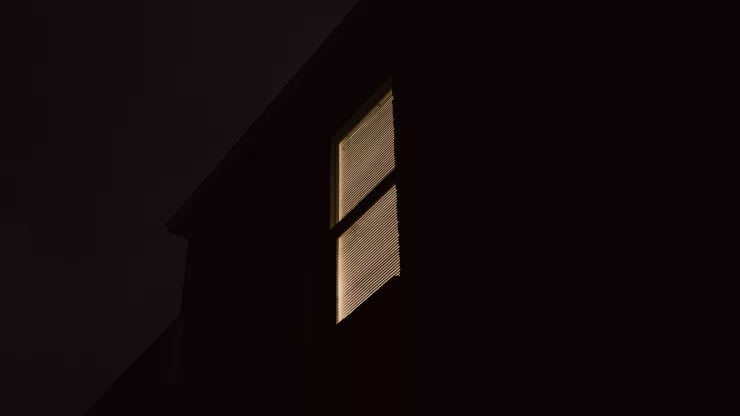Late-night snacking is a common occurrence for many people, whether due to a busy schedule, stress, or simply enjoying a midnight snack.
However, there has been much debate about whether eating late at night is bad for our health.
In this article, we will explore the science behind late-night eating, its effects on our health, and ways to reduce it.
Jump to Section
Introduction
Eating late at night has become a popular habit in today’s fast-paced world.
With busy schedules and the convenience of 24-hour food delivery, it’s not uncommon to indulge in a snack or a full meal late in the evening.
However, research has shown that eating late at night can have negative effects on our health.
What is Late Night Eating?
Late-night eating refers to consuming food and beverages after 8 p.m. or closer to bedtime. This can include anything from a small snack to a full meal.
Why is Late Night Eating a Controversial Topic?
The topic of late-night eating is controversial because some studies have shown that it can lead to weight gain, poor digestion, and other health issues, while other studies suggest that it may not have a significant impact on our health. Let’s explore the science behind late-night eating to understand its effects on our bodies.
The Science Behind Late Night Eating
How Digestion Works
Digestion is a complex process that involves breaking down food into smaller components that our bodies can absorb and use for energy. This process is controlled by several hormones and enzymes that are released throughout the digestive tract.
How the Body Processes Food at Night
Our bodies have a natural clock called the circadian rhythm that regulates various biological processes, including digestion. During the night, our bodies naturally slow down digestion to prepare for sleep.
Impact of Circadian Rhythm on Digestion
Eating late at night can disrupt our circadian rhythm and interfere with our bodies’ ability to properly digest food. This can lead to poor absorption of nutrients and other digestive problems.
Research on the Effects of Late Night Eating
Recent studies have shown that eating late at night can have negative effects on our overall health. Here’s what the research says:
| Relative Table: Research on Late Night Eating |
|---|
| Eating late at night can lead to weight gain. |
| Late-night eating can cause digestive problems and bloating. |
| Eating before bedtime can trigger heartburn and acid reflux. |
| Late-night snacking can disrupt our sleep patterns. |
| Regular late-night eating may increase the risk of chronic diseases such as diabetes and heart disease. |
The Effects of Late Night Eating on Health
Weight Gain
Eating late at night can lead to weight gain because our bodies are less active during sleep, and we are more likely to store excess calories as fat. Also, late-night snacking is often associated with consuming high-fat and high-sugar foods, which can contribute to weight gain.
Digestive Problems
Digestive problems such as bloating, constipation, and diarrhea can occur when we eat late at night. This is because our bodies are not designed to digest food while we’re sleeping, and food that is not properly digested can cause these discomforts.
Heartburn and Acid Reflux
Eating before bedtime can trigger heartburn and acid reflux, which occurs when stomach acid flows back into the esophagus. This can cause a burning sensation in the chest and throat, and over time, it can damage the esophagus.
Insomnia and Sleep Disruption
Eating late at night can disrupt our sleep patterns, making it more difficult to fall asleep and stay asleep throughout the night. This can lead to feelings of fatigue and irritability the next day.
Increased Risk of Chronic Diseases
Regular late-night eating may increase the risk of chronic diseases such as diabetes and heart disease. This is because eating late at night can disrupt our circadian rhythm and lead to poor digestion and absorption of nutrients.
Relationship Between Late Night Eating and Mental Health
Recent studies have found a link between late-night eating and mental health. Eating late at night can lead to depression, anxiety, and other mood disorders. This is because late-night snacking is often associated with emotional eating and stress.
Factors that Contribute to Late Night Eating
Social and Cultural Factors
Social and cultural factors such as peer pressure, social events, and family traditions can influence our eating habits, including eating late at night.
Stress and Emotional Eating
Stress and emotional eating can lead to late-night snacking, as people often turn to food for comfort during times of stress or emotional distress.
Busy Schedules and Time Constraints
Busy schedules and time constraints can make it difficult to eat nutritious meals during the day, leading to late-night snacking to fill the gap.
Shift Work and Irregular Schedules
Shift work and irregular schedules can disrupt our circadian rhythm and lead to late-night eating as a result.
Lack of Nutritious Meals During the Day
A lack of nutritious meals during the day can leave us feeling hungry at night, leading to late-night snacking.
Tips to Reduce Late Night Eating
Establishing a Regular Eating Schedule
Establishing a regular eating schedule can help reduce late-night eating by ensuring that we consume nutritious meals during the day and avoid snacking at night.
Eating Nutritious Meals During the Day
Eating nutritious meals during the day can help reduce late-night snacking by providing our bodies with the nutrients and energy they need to function properly.
Creating a Calming Bedtime Routine
Creating a calming bedtime routine can help reduce stress and emotional eating, making it easier to avoid late-night snacking.
Avoiding Triggers for Late Night Eating
Identifying and avoiding triggers for late-night eating can help break the habit and promote healthier eating habits.
Seeking Support for Emotional Eating
Seeking support from a therapist or support group can help individuals overcome emotional eating and reduce the urge to snack late at night.
Conclusion
Late Night Eating: To Snack or Not to Snack?
Late-night snacking has become a common habit, but research has shown that it can have negative effects on our health.
Eating late at night can lead to weight gain, digestive problems, heartburn, insomnia, and an increased risk of chronic diseases.
Factors such as stress, irregular schedules, and lack of nutritious meals during the day can contribute to late-night eating, but establishing a regular eating schedule, eating nutritious meals during the day, and creating a calming bedtime routine can help reduce the habit.
FAQ
What’s the best time to stop eating at night?
Ideally, it’s best to stop eating at least two to three hours before bedtime to allow enough time for digestion.
Is it okay to snack at night?
It’s not necessarily bad to snack at night, but it’s important to choose healthy, nutrient-dense foods and avoid high-fat and high-sugar foods.
Can late-night eating cause weight gain?
Yes, eating late at night can lead to weight gain because our bodies are less active during sleep, and we are more likely to store excess calories as fat.
How can I reduce my late-night snacking habits?
Establishing a regular eating schedule, eating nutritious meals during the day, creating a calming bedtime routine, avoiding triggers for late-night eating, and seeking support for emotional eating can all help reduce late-night snacking habits.

With a deep passion for personal development, Ben has dedicated his career to inspiring and guiding others on their journey towards self-improvement.
His love for learning and sharing knowledge about personal growth strategies, mindfulness, and goal-setting principles has led him to create My Virtual Life Coach.
Contact Ben at [email protected] for assistance.




